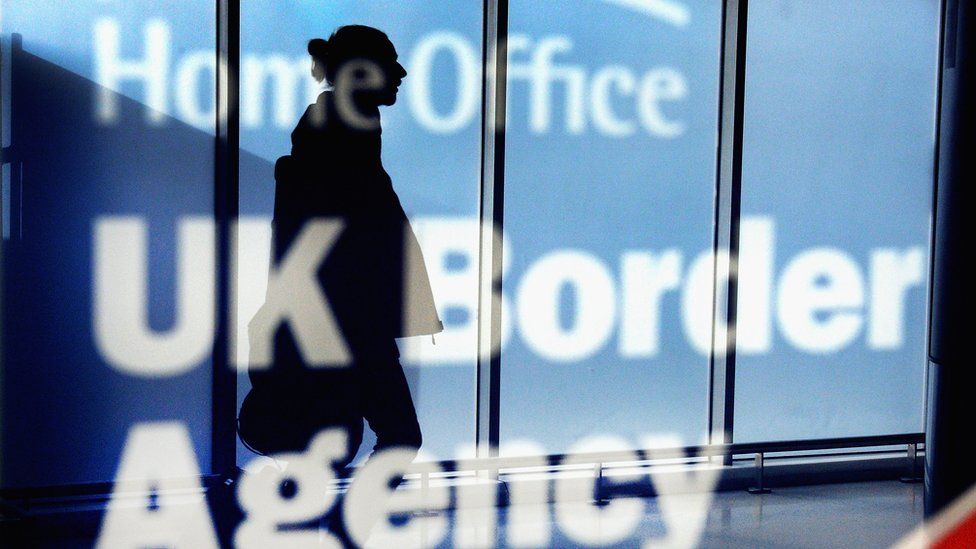UK could need '5,000 more customs officials after Brexit'
- Published

The head of the UK tax agency has said Britain could need up to 5,000 extra staff to handle customs and border checks after Brexit.
HMRC boss John Thompson also said a new customs arrangement with the EU could cost as much as £800m and take seven years to implement.
Speaking before the Treasury Committee, he said HMRC did not have the money at this point to make the changes.
But he said there had been "extensive conversations" with the Treasury.
Mr Thompson said HMRC was investigating the "business case" for a new Singapore-style system, which would allow firms to get their tax and border checks done in one place.
This would bring together 26 different organisations into a "single window", and make trade "much smoother".
However, he said the undertaking would be a "mega project".
"We need to be transparent with you... You need to be thinking about that as a project that costs somewhere between £500m and £800m," he told MPs.
"It would take five to seven years to implement," he said.
Avoiding queues
Another HMRC official told the MPs the agency would have to deal with an additional 130,000 new companies after Brexit.
Jim Harra, director general of customer strategy, said these would be firms that import and export within the EU but do not currently come into contact with British customs.
"Based on a crude extrapolation", he said this would increase customs declarations fivefold, along with staff workload.
"If your customs declarations are multiplied fivefold, if you multiplied your resources fivefold, what would that come out at.
"It would come out at an extra three to 5,000 people," he said.
Last month the government revealed its "future partnership paper", which laid out two potential options for customs arrangements after Brexit.
One option would be a new customs partnership with the EU, which would do away with a customs border altogether.
The other would see the UK negotiate agreements with the EU to reduce trade barriers and harness technology to avoid long queues at ports.
- Published10 September 2017
- Published15 August 2017